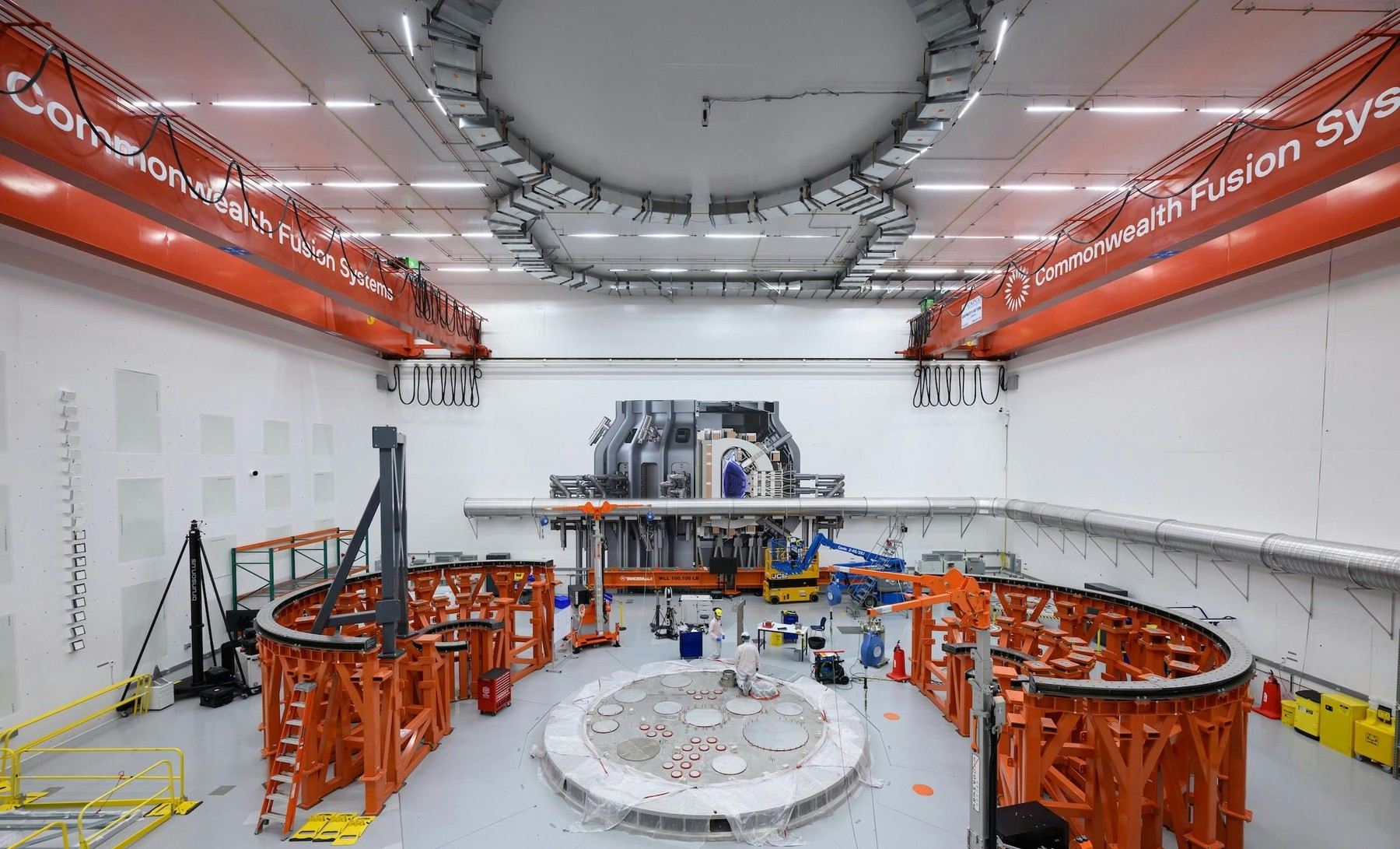Welcome to Climate Tech Pulse, your daily dose of market intelligence helping fuel the fight against climate change. From groundbreaking investments to cutting-edge research, we’re bringing you the latest in climate tech that’s shaping our future.
Don’t miss out on tomorrow’s climate solutions – subscribe now to stay ahead of the curve! https://lnkd.in/dwr7B9XJ
Today’s newsletter:

🔝Today’s Top Story: Formo, a fermentation startup based in Berlin, has recently raised $61 million in Series B funding. The round was supported by both current and new investors, including Foodlabs, EQT Ventures, REWE Group, and The Nature Conservancy.
📊 Today’s Data Point: Key Statistics on Methane Emissions: Current Trajectories and Projections.
🌳 Climate Insider Intelligence: Clean Tech Market Map by Climate Insider.
Berlin’s Formo Raises $61M to Launch Game-Changing Koji Protein Cheeses in 2,000+ Stores Across Germany and Austria
Image Credit: Formo
Investment and Expansion
Formo, a Berlin-based fermentation startup, recently secured $61 million in Series B funding, backed by both existing and new investors such as Foodlabs, EQT Ventures, REWE Group, and The Nature Conservancy. With this financial boost, the company has launched its koji-based cheeses in over 2,000 REWE, BILLA, and Metro stores across Germany and Austria. According to Sandra Malmber, Partner at EQT Ventures, Formo’s ability to demonstrate commercial traction was key to securing this significant investment, a rare achievement for companies in this sector at such an early stage.
Koji Protein Innovation
Formo’s first product range uses a biomass fermentation process with Aspergillus Oryzae (koji), a naturally occurring protein with a long history in food production. Koji serves as a base for plant-based fats and other ingredients to create cheese alternatives like ‘Frischhain’ and ‘Camembritz.’ While these products offer high nutritional value and neutral flavors, they lack the meltability and stretchability of traditional dairy cheeses. However, Formo plans to address this gap by launching products featuring precision-fermented casein proteins in 2025, which will enhance texture and performance.
Strategic Partnerships and Future Goals
Formo is scaling its production capabilities, currently producing triple-digit tons of cheese monthly, with plans to triple capacity next year. Instead of building its own facilities, the company focuses on strategic partnerships with traditional cheese manufacturers for large-scale production. Looking ahead, Formo aims to become a major player in the dairy-free cheese market and has no plans to supply its proteins as B2B ingredients, emphasizing its commitment to developing a strong consumer-facing brand. Read More
Quote of the Day
“We are using Non-GMO Aspergillus Oryzae (koji) in a biomass fermentation process. We harness the entire biomass produced by the fermentation process to create dairy alternatives. Koji has a long history in food production and offers a unique profile for plant-based cheese products. Its versatility allows us to produce a clean, nutritious base, which we can build upon to create innovative and sustainable dairy alternatives. We’ve been working on this innovation for the past two years,” said Head of Global Public Affairs and General Manager, APAC, Christian Poppe. Source
Significance: The quote from Christian Poppe highlights several key points with broader significance in the context of the news:
- Non-GMO focus: Formo’s use of Aspergillus Oryzae (koji) without genetic modification aligns with consumer demand for natural, non-GMO products, especially in plant-based and sustainable food markets.
- Sustainability: The biomass fermentation process maximizes resource efficiency by using the entire biomass, supporting Formo’s goal of creating environmentally sustainable dairy alternatives.
- Innovation: The development of koji-based cheese alternatives represents a significant innovation in the plant-based food industry, showcasing Formo’s efforts to produce clean and nutritious dairy alternatives over the past two years.
- Versatility of koji: Koji’s long-standing history in food production, combined with its functional properties, underscores its potential as a key ingredient in transforming traditional dairy products into plant-based alternatives.
- Scalability: By leveraging this process, Formo is able to scale production efficiently, setting the stage for larger market entry and broader consumer adoption across Europe.
This quote encapsulates Formo’s commitment to combining tradition with cutting-edge sustainable food technology.
Market Movers
- Cylib has begun construction on Europe’s largest end-to-end lithium-ion battery recycling facility in Germany, a €180 million project backed by Porsche and Bosch, aimed at recycling 30,000 metric tons of EV batteries annually to reduce waste in the electric vehicle industry. Read More
- Number 8 Bio, a startup using synthetic biology to reduce methane emissions from livestock, raised $7 million in a Seed round led by Main Sequence, with funds directed toward product development, scaling, and partnerships. Read More
- Seattle-based carbon removal marketplace Nori has shut down after seven years, citing challenges in the voluntary carbon market despite raising $17.25 million and being on track to remove 700,000 tons of carbon in 2024. Read More
- The world’s largest stellarator, Wendelstein 7-X, is resuming experimental operations at the Max Planck Institute for Plasma Physics after undergoing maintenance and upgrades, following its record eight-minute power output of 1.3 gigajoules in February 2023. Read More
Tech Spotlight
CURB Initiative for Carbon Utilization and Biomanufacturing Decarbonization
Source: Texas A&M University, Washington University in St. Louis, National Science Foundation (NSF) 2024
In response to growing concerns about industrial emissions, Texas A&M University is at the forefront of an innovative research initiative aimed at achieving zero or negative carbon emissions across U.S. manufacturing. The project, known as the Carbon Utilization Redesign for Biomanufacturing-Empowered Decarbonization (CURB) Engineering Research Center, is a $26 million effort funded by the National Science Foundation (NSF). This collaboration, led by Washington University in St. Louis, involves several top-tier academic institutions, including the University of Delaware and Prairie View A&M University.
The CURB initiative aims to convert carbon dioxide (CO2) emissions into valuable products, driving the development of a circular carbon bioeconomy. Through advanced carbon capture and conversion technologies, CURB seeks to transform manufacturing while addressing critical sustainability challenges.
Commercial Viability
- Performance Metrics: One of the primary technologies developed under CURB involves a novel system that converts CO2 into biofertilizers, chemicals, and eco-friendly materials. This approach not only reduces carbon emissions but also generates valuable products, making it economically attractive. Texas A&M has already filed a patent for the process, demonstrating the commercial potential to reshape industries that rely on chemical production.
- Scalability: CURB’s research includes the development of digital tools, or “digital twins,” which simulate and assess the feasibility of various biomanufacturing pathways. These tools optimize carbon capture and bio-conversion technologies, ensuring the solutions are cost-effective and scalable for real-world applications.
Technical Viability
- Innovative Technology: A central breakthrough in CURB’s strategy is the integration of CO2 reduction with biological conversion, developed by Dr. Susie Dai’s lab at Texas A&M. This process enables the transformation of waste CO2 into high-value products. The CURB initiative leverages biochemical systems to achieve this conversion efficiently and sustainably.
- Life Cycle Assessments: Texas A&M is leading efforts to conduct comprehensive life cycle assessments (LCA) to evaluate the environmental impact of the processes developed under CURB. These assessments ensure that the solutions are environmentally sustainable and meet high standards for emissions reduction.
Environmental Viability
- Sustainable Manufacturing: CURB’s technologies aim to decarbonize hard-to-abate sectors such as chemical manufacturing, transforming them into sustainable, circular systems. By valorizing CO2 and converting it into marketable products, CURB supports the broader adoption of a circular carbon economy, reducing reliance on fossil fuels.
- Alignment with Climate Goals: The development of CO2 conversion technologies directly contributes to global carbon reduction targets. CURB’s work is a key step toward decarbonizing industrial sectors, helping the U.S. meet its emissions reduction goals and furthering global efforts to combat climate change.
Scaling Potential
- Commercialization Pathways: The patented CO2 conversion process developed by Texas A&M is positioned to revolutionize the biomanufacturing sector. The potential applications span industries from agriculture to chemicals, providing a clear path to commercialization. The scalable nature of the technology ensures it can be applied across a wide range of industrial sectors.
- Investment and Growth: The CURB initiative’s success could attract substantial investment, driving further research and development in biomanufacturing and carbon utilization technologies. These technologies have the potential to create new markets and job opportunities, particularly in industries that are difficult to decarbonize.
Long-Term Implications
The CURB initiative represents a transformative approach to tackling carbon emissions in manufacturing. By developing scalable, sustainable solutions for carbon capture and conversion, CURB paves the way for a circular carbon economy. This advancement not only reduces industrial emissions but also stimulates economic growth through the creation of valuable products from waste CO2. As CURB’s innovations continue to be refined and commercialized, they could play a vital role in the U.S. transition to a sustainable, low-carbon manufacturing future, helping to meet global climate goals. Read More
Policy Pulse
This section includes global updates on climate change policy, governance and regulation.
ShareAction and UNEP publish guidelines for nature-friendly investment.
A new report from ShareAction and UNEP-WCMC provides investors with practical guidance on integrating biodiversity protection into their investment policies, focusing on how capital allocation, portfolio stewardship, and environmental risk management can help halt biodiversity loss, particularly in government-designated protected areas, while also offering a framework for setting expectations and escalation strategies for portfolio companies.
Why it Matters: This policy development matters because it equips investors with the tools to address biodiversity loss through responsible investment practices, particularly in critical, protected ecosystems.
Today’s Climate Data Point
Key Statistics on Methane Emissions: Current Trajectories and Projections
Source: September 2024 Research
Global Methane Emissions Trends:
- Recent Increase: Over the past five years, global methane emissions have risen faster than ever, defying efforts to curb them under the Global Methane Pledge.
- Current Levels: Methane concentrations are now more than 2.6 times higher than pre-industrial levels, marking the highest levels in at least 800,000 years.
- Emission Trajectories: Methane emission rates are following the most extreme scenarios used by climate scientists, leading to projections of over 3°C (5°F) of global warming by the century’s end.
Key Data Points:
- Methane Sources: Methane emissions come from both natural sources (e.g., wetlands) and human activities (e.g., agriculture, fossil fuels, landfills).
- Recent Estimates: Total annual methane emissions increased by 61 million tons or 20% over the past two decades.
- Human Activities: In 2020, 65% of global methane emissions were from human activities, with agriculture and waste contributing significantly.
Regional Highlights:
- Regional Increases: Significant increases in emissions are observed in China and Southeast Asia. Only the European Union and possibly Australia have seen reductions in methane emissions over the past two decades.
Pandemic Impact:
- 2020 Emissions Surge: The atmosphere accumulated nearly 42 million tons of methane in 2020, twice the average increase from the 2010s.
- Lockdown Effects: Reduced NOx emissions during the COVID-19 lockdowns contributed to increased methane concentrations, showcasing the complex interaction between air quality and climate change.
New Findings and Methodological Updates:
- Human Influence on Wetlands: Recent assessments include methane emissions from wetlands and freshwater sources affected by human activities, such as reservoirs and fertilizer runoff.
- Reservoir Emissions: Reservoirs contribute an estimated 30 million tons of methane per year due to the decomposition of submerged organic matter.
Implications and Outlook:
- Climate Thresholds: The world is experiencing the consequences of reaching a 1.5°C increase in global average surface temperature.
- Future Research: Ongoing research aims to better understand the impact of human activities on methane emissions and develop effective mitigation strategies.
Key Contributors:
- Lead Researchers: Rob Jackson (Stanford University), Marielle Saunois (Université Paris-Saclay), with contributions from various institutions including NASA Goddard Space Flight Center, Yale School of the Environment, and more.
- Funding Sources: Supported by the Gordon and Betty Moore Foundation, UNEP’s International Methane Emissions Observatory, and other institutions.
Conclusion: The data highlights a troubling trend in methane emissions despite international commitments to reduce them. The increasing levels and rising emissions from both natural and anthropogenic sources emphasize the urgent need for more effective climate policies and emission reduction strategies. Read More
In Other News
This section covers notable news highlights in climate tech.
- Berlin-based climate tech startup Ucaneo has secured €6.75M in seed funding to develop one of Germany’s largest direct air capture testing facilities and advance its industrial-scale DAC technology. Read More
- Trent University’s Forensics Crime Scene Facility has become the first Canadian building and the 11th globally to achieve the prestigious Zero Carbon Certification from the International Living Future Institute. Read More
Climate Insider Intelligence: Clean Tech Market Map by Climate Insider
Climate tech is evolving rapidly, addressing climate change through a multitude of innovations across diverse sectors.
The challenge of mapping this complex landscape is akin to assembling a vast puzzle with pieces that are continuously changing shape.
Climate Insider’s clean tech market map dissects the climate tech arena into seven core segments—ranging from energy and transportation to carbon management and the built environment—each with its own intricate subcategories.
This comprehensive approach not only sheds light on the intricate web of technological advancements but also helps in navigating the dynamic landscape of climate tech startups.
As we delve into the methodologies and key segments of our map, we reveal how diverse and interdisciplinary the sector has become, reflecting a global effort to tackle climate challenges from every possible angle. Read More
Climate Insider Partners with The Climate Tech Investors Summit
The Climate Insider is proud to officially partner with 🌏 The Atlas Capital & Climate Tech Coalition to cover The Climate Tech Investors Summit (part of Climate Week NYC) – New York City on September 24-25, 2024!
This exclusive event, sponsored by The Climate Tech Coalition and the Altru Investment Network, is the must-attend gathering for family offices, institutional investors, and technologists who are serious about funding climate solutions and driving innovation. 🌍
Last year’s summit brought together 15 family offices, 20 venture capitalists, and over 100 attendees, creating a powerful network of changemakers mobilizing capital to tackle the planet’s most pressing issues.
The Summit will feature:
🔷 Interactive roundtable discussions on decarbonization, climate tech entrepreneurship, and breakthrough technologies.
🔷 Industry leaders from Lowercarbon Capital, Breakthrough Energy Ventures, Fifth Wall, BlackRock, and more, sharing insights on how private capital can accelerate climate action.
🔷 Exclusive opportunities to connect with high-net-worth individuals and family offices dedicated to finding and funding climate solutions.
🤝 Among the organizing team: Pakpoom Tanthaprabha, Djoann Fal, and Chopper Chuwong.
👉🏽 Learn more: https://lnkd.in/gbgWZQkp
We’re excited to bring you insights and stories from this premier event. Stay tuned for exclusive coverage from Climate Insider!








